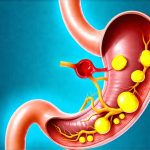Gastroesophageal reflux disease (GERD) is an incredibly common condition, affecting millions worldwide. Often described as heartburn, it’s much more than just a discomfort after a spicy meal; it’s a complex physiological process where stomach acid frequently flows back into the esophagus. This can lead to a variety of symptoms, ranging from mild annoyance to significant disruption of daily life. While many associate GERD primarily with that familiar burning sensation in the chest, one surprisingly frequent – and often overlooked – symptom is coughing, particularly after meals. Understanding the link between GERD and post-meal coughing requires delving into how the digestive system works, what goes wrong in GERD, and when a persistent cough warrants further investigation.
The connection isn’t always immediately obvious because the cough itself doesn’t necessarily feel like heartburn. Many individuals experiencing this symptom might attribute it to allergies, asthma, or even a common cold, leading to delayed diagnosis and potentially worsening symptoms. The key lies in recognizing patterns – does the coughing consistently occur shortly after eating? Is it triggered by certain foods? Does it seem worse when lying down? These are crucial questions that can help differentiate between a simple cough and one related to underlying GERD. Furthermore, the nature of the cough itself is important; often, these GERD-related coughs are dry, non-productive, and persistent, rather than bringing up phlegm. This article will explore this common yet potentially serious symptom, offering insights into its causes, diagnosis, management, and when to seek professional medical advice.
The Mechanism: How GERD Causes Coughing
The esophagus is the muscular tube that carries food from your mouth to your stomach. At the bottom of the esophagus is a ring of muscle called the lower esophageal sphincter (LES). This sphincter acts like a valve, opening to allow food and liquids into the stomach, and then closing to prevent stomach acid from flowing back up. In people with GERD, this LES either weakens or relaxes inappropriately, allowing acidic contents to reflux – that is, flow backward – into the esophagus. It’s not just about the acidity; even non-acidic reflux can irritate the esophagus and trigger a cough reflex.
This reflux isn’t always felt as heartburn. In many cases, it’s “silent” or non-erosive reflux, meaning there aren’t significant visible changes to the esophageal lining. However, even silent reflux can cause irritation high enough in the esophagus to trigger vagal nerve stimulation. The vagus nerve is a long cranial nerve that runs from your brainstem down through your neck and chest, impacting various bodily functions, including the cough reflex. When acid or other stomach contents reach the upper part of the esophagus, they stimulate receptors along the vagus nerve, leading to coughing as a protective mechanism. – This is because the body perceives the refluxate as an irritant that needs to be cleared from the airway.
The timing of the cough – specifically after meals – further reinforces this connection. Eating stimulates acid production in the stomach and temporarily weakens the LES. Larger meals, fatty foods, chocolate, caffeine, alcohol, and mint are all known to exacerbate these effects, increasing the likelihood of reflux and subsequent coughing. Additionally, lying down or bending over after eating can also contribute because gravity no longer helps keep stomach contents where they belong. The combination of increased acid production, a weakened LES, and postural changes makes post-meal coughing a very common symptom for those with GERD. Understanding this process is important when navigating employment during treatment.
Diagnosing the Connection: Distinguishing GERD Cough from Other Causes
Coughing is a ubiquitous symptom, meaning it can stem from countless sources. Before attributing a cough to GERD, it’s crucial to rule out other potential causes – and this often requires medical evaluation. Common culprits include respiratory infections (like colds or flu), asthma, allergies, chronic obstructive pulmonary disease (COPD), postnasal drip, and even certain medications. – A thorough medical history will explore the characteristics of your cough: how long it’s been present, what triggers it, when it’s worse, and any accompanying symptoms.
A doctor might initially recommend a trial period of acid-reducing medication – typically proton pump inhibitors (PPIs) or H2 receptor antagonists. If the coughing significantly improves with medication, it strongly suggests GERD as the underlying cause. However, this isn’t always conclusive. To confirm the diagnosis and assess the severity of reflux, more specific tests may be needed: 1. Esophageal manometry: Measures the pressure within the esophagus and how well the LES is functioning. 2. Ambulatory pH monitoring: Continuously monitors the acidity levels in the esophagus over a period of 24-48 hours to detect episodes of reflux. 3. Endoscopy: Involves inserting a thin, flexible tube with a camera into the esophagus to visualize the lining and check for any damage or inflammation. If you’ve recently had surgery, digestive issues may also be contributing factors.
It’s vital to remember that self-diagnosing is never advisable. A healthcare professional can accurately assess your symptoms, rule out other possibilities, and determine the best course of action. Ignoring persistent coughing – even if you suspect it’s GERD-related – could delay treatment for a more serious underlying condition. Furthermore, sometimes, a cough can be due to both GERD and another condition simultaneously, requiring a multifaceted approach to management. Common causes of abdominal pain should also be considered during diagnosis.
Lifestyle Modifications and Medical Management
For many individuals with mild to moderate GERD-related coughing, lifestyle modifications are the first line of defense. These include: – Elevating the head of your bed by 6-8 inches using blocks or a wedge pillow. – Avoiding trigger foods (fatty foods, chocolate, caffeine, alcohol, mint). – Eating smaller, more frequent meals instead of large ones. – Not lying down immediately after eating; wait at least 2-3 hours. – Maintaining a healthy weight. – Quitting smoking.
When lifestyle changes aren’t sufficient, medical intervention becomes necessary. Over-the-counter antacids can provide temporary relief from heartburn and may lessen coughing in some cases. However, for more persistent symptoms, prescription medications are often required. PPIs (like omeprazole, lansoprazole) are highly effective at reducing acid production and are frequently used to manage GERD. H2 receptor antagonists (like ranitidine, famotidine) offer a milder form of acid suppression. In some cases, prokinetic agents – which help speed up stomach emptying – may be prescribed. It is important to cope with fatigue during treatment.
In rare instances where medications aren’t providing adequate relief or if there’s significant esophageal damage, surgery might be considered. Surgical options aim to strengthen the LES or create an artificial valve to prevent reflux. – It is important to note that surgery is typically reserved for severe cases and isn’t always necessary. The goal of treatment is not just to eliminate the cough but to manage the underlying GERD effectively, preventing further complications and improving quality of life. Managing symptoms can also involve considering dinner meals appropriate for your condition.
When to Seek Immediate Medical Attention
While most instances of post-meal coughing related to GERD are manageable with lifestyle changes and medication, certain symptoms warrant immediate medical attention. These include: – Difficulty swallowing (dysphagia). – Chest pain that radiates to the arm or jaw. – Shortness of breath. – Unexplained weight loss. – Vomiting blood. – Black, tarry stools.
These symptoms could indicate a more serious underlying condition, such as esophageal stricture (narrowing of the esophagus), Barrett’s esophagus (a precancerous change in the lining of the esophagus), or even a heart attack. Never dismiss these warning signs and seek immediate medical care if you experience them. Even without these alarming symptoms, it’s crucial to consult with a doctor if your cough is persistent, worsening, interfering with sleep or daily activities, or not responding to over-the-counter treatments. Proactive evaluation and management are key to preventing complications and maintaining good health. Ultimately, understanding the connection between GERD and coughing after meals empowers individuals to recognize symptoms, seek appropriate care, and take control of their digestive health. If you’re navigating challenges during or after treatment, it may be helpful to learn how to navigate employment.


















